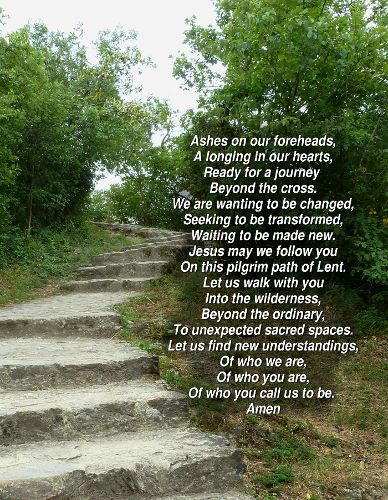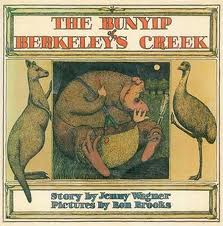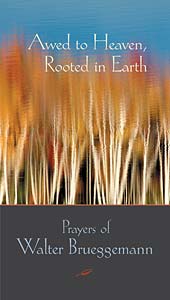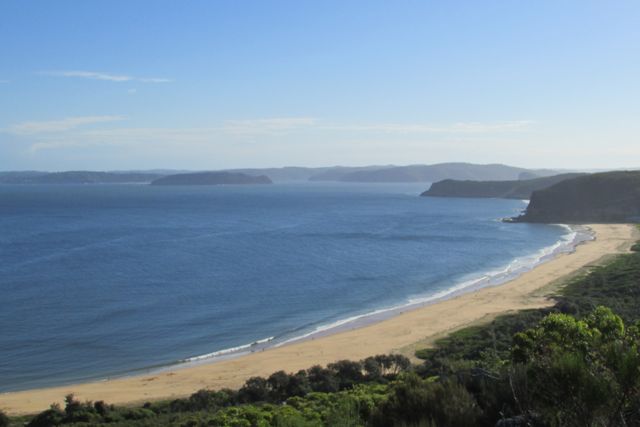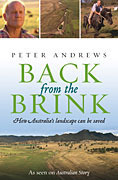As you know I am getting ready for the celebration of Lent. Probably you will not be surprised to hear that this year we plan to use A Journey Into Wholeness for our daily reflections. I will also use the amazing new Lenten prayer cards as a focal point on my desk. I plan to write my weekly commitment on the back of the appropriate prayer as a constant reminder throughout the day of how seriously I need to take this commitment.
Monday the MSA staff will talk about the practices we plan to adopt for the season. Usually Tom and I assume the discipline of the $2 challenge, restricting our daily expenditure on food to $2/day for at least one week of Lent. That means a lot of lentils, beans and rice. Pad Thai is also good. It also means relying on vegetables from the garden. Definitely vegetarian. No eating out. Making everything from scratch – maybe even getting back into bread making.
In researching recipes to get ready for this challenge, I have read about lentils. The lowly lentil has been sustaining human kind for thousands of years. Some foodies once considered lentils as poor man’s food and refused to eat them because they are so inexpensive. Ironic isn’t it? Although they may be cheap, lentils are very nutritious, filling, and more importantly, arguably the most flavorful of all the legumes. The name lentil has nothing to do with Lent but they make a great Lenten staple. So lets go on a diet this Lent – not to lose weight but to identify with those live on the fringes of society.(more info here)
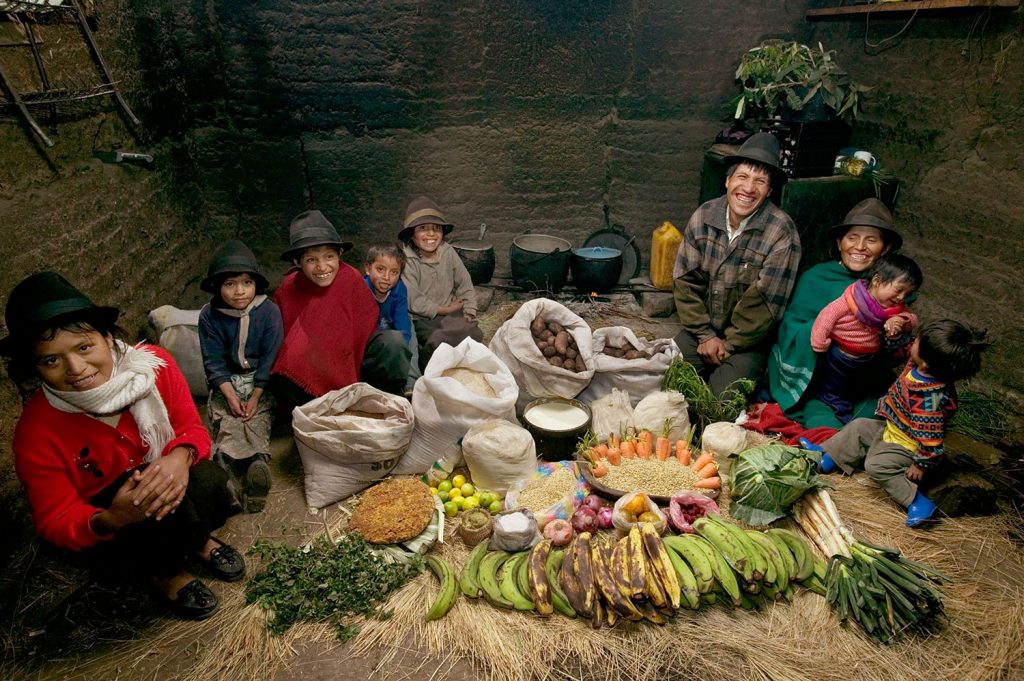
The Ayme family in their kitchen house in Tingo, Ecuador, a village in the central Andes, with one week’s worth of food.
Believe it or not I love this. I revisit the images in Hungry Planet, by Peter Menzel, like the one above that depict what people in different parts of the world eat each day, (see other images here) and am reminded of the privileges of our lives – the food we take for granted and the blessings of always having enough. Yet in other parts of the world many still struggle to find enough to eat each day. Bread for the World tells us that worldwide, the number of hungry people has dropped significantly over the past two decades, but 842 million people continue to struggle with hunger every day.1.2 billion people still live in extreme poverty — on less than $1.25 per day not just for their food budget but for everything. And most sobering of all, each year, 2.6 million children die as a result of hunger-related causes.
So will you join me in taking Lent seriously this year not just for your own inner journey but for those at the margins and for our planet as well?
One of my favourite Australian stories is a children’s book called The Bunyip of Berkley’s Creek. It tells the story of a bunyip, a mythical creature from aboriginal folklore which emerges from a billabong (swampy lake) and sets out on a journey of discovery.
Who am I the bunyip asks those he meets. Now it is a long time since I read the book but here is what I think the responses where. A duck says the platypus as he looks at the bunyip’s huge webbed feet. Ugly says the kangaroo when he catches a glimpse of the bunyip’s grotesque face. You don’t exist at all says the scientist ignoring the mythical creature in front of him. Tired and dispirited the bunyip returns to the billabong alone. Then as he watches another creature emerges from its depths. Who am I? it asks. You’re a bunyip responds the delighted first bunyip and you look just like me.
All of God’s creatures, even the mythical ones need a sense of where they come from and where they belong. I was very aware of this last month as I spent time with my family in Australia. This was my first trip since my mother died last year and I was not quite sure how I now belonged to this family I hardly ever saw.
As you can imagine much of our time was spent reminiscing, sharing stories not just about our childhood but about our ancestors.
My father was Greek but it is probable that my maiden name Aroney is a rendition of Aaron. Perhaps way back we have Jewish blood in us. My ancestors migrated to Constantinople, then to Spain and finally to the island of Kythera off the southern coast of Greece. In the early 1900s many headed for Australia. Blue eyed Greeks, maybe mixed with Viking blood, no one is sure, but we all wonder and speculate. We want to know where we come from. We want to know where we belong.
My mother’s family is harder to trace. Her parents migrated from Scotland in the early 1900s, her mother from Aberdeen, her father from Keith. Her maiden name was Milne, a common Scottish name and her Dad’s family probably goes back a long way in Scotland. But Mum’s mother’s name was Cato. Is it Spanish? Again no one knows but we can speculate. Her family was part of the aristocracy and the Scottish nobility had close ties to the Spanish Court.
These discussions have been very important for me. They have assured me that I will always belong to this family, not just the present generation, but all those who have gone before too. This provides a sense of rootedness, an anchor for my soul.
As a follower of Jesus however, I know that the sense of identity I gain from my biological family is not enough. My identity is now rooted in being a child of God and my sense of belonging is tied to my true home in the kingdom of God.
Becoming a Christian asks all of us to take on a new identity and a new place of belonging. It challenges us to be reshaped according to a different culture. Old priorities are turned upside down and we enter a process of unlearning, learning and relearning. The kingdom of God culture of love, generosity, compassion and mutual care, transcends the cultures in which we grew up and from which we draw our stories. Living into this culture is meant to anchor us in ways that the stories of our birth families never can.
So my question for all of us today is: Where do we feel we belong?
I love the Lord’s prayer and over the years have posted numerous versions that I think are well worth meditating on. Like many of us,I have spent hours reading and rereading the words, often rewriting it in my own words. I could not help but think of this as I watched this version which Jamie Arpin Ricci sent me yesterday. It was discerned together as a community while studying the Sermon on the Mount. Enjoy
You may also like to check out some of my other favourite versions.
The Blogger’s Lord’s Prayer by Andrew Jones,
The Lord’s Prayer – An Adaptation
The Lord’s Prayer – How Should We Say It.
I love this beautiful prayer by Walter Brueggemann, which comes from Awed to Heaven, Rooted in Earth: Prayers of Walter Brueggemann. I love Brueggemann’s theology but this collection of prayers is a real treat.
You are the giver of all good things.
All good things are sent from heaven above,
rain and sun,
day and night,
justice and righteousness,
bread to the eater and
seed to the sower,
peace to the old,
energy to the young,
joy to the babes.
We are takers, who take from you,
day by day, daily bread,
taking all we need as you supply,
taking in gratitude and wonder and joy.
And then taking more,
taking more than we need,
taking more than you give us,
taking from our sisters and brothers,
taking from the poor and the weak,
taking because we are frightened, and so greedy,
taking because we are anxious, and so fearful,
taking because we are driven, and so uncaring.
Give us peace beyond our fear, and so end our greed.
Give us well-being beyond our anxiety, and so end our fear.
Give us abundance beyond our drivenness,
and so end our uncaring.
Turn our taking into giving … since we are in your giving image:
Make us giving like you,
giving gladly and not taking,
giving in abundance, not taking,
giving in joy, not taking,
giving as he gave himself up for us all,
giving, never taking. Amen.
Today is our last day in Australia. This has been an amazing trip. Good times with family and friends and good times reflecting on my life, vocation and future focus. Wonderful times drinking in scenery I have not seen since I was a child. In the midst I have found myself thinking a lot about God’s view of each of us. This is so important I realize because how we think God sees us effects the ways we look at others.
I was converted as a teenager into a conservative church whose sole concern was “Are you saved?” Believing that Jesus saved us from our sins was our sole focus.
My encounters with those outside the church focused on their brokenness and need for redemption. Ironically this view rarely encouraged me to really find out about the deep concerns and pains that my friends and colleagues grappled with. As long as they believed in Jesus who they were and what they cared about did not seem to matter.
Today I have fewer questions for my friends about their salvation and need for redemption and more about who they are and what their hopes and fears for the future are. From my perspective some are further from God today then they were forty years ago, Yet I have learned to trust that God is at work in their lives even though I don’t always recognize what God is doing.
One of the important lessons I have learned in the last few years is that we are all made in the image of God. Yes that image is distorted by our brokenness but it is still there. We glimpse it when strangers reach out as neighbours travelling across the globe to help others whose livelihoods are destroyed by earthquakes and famines. We see in when firefighters put their lives at risk to save those trapped in burning buildings. We see it when people’s hearts ache for the abandoned, the oppressed and the diseased even when from our perspective they are far from the saving grace of Christ.
As I thought about this today I could not help but think of the rich young ruler who asked Jesus “What must I do to inherit eternal life” Jesus answers:
You know the commandments: ‘You must not murder. You must not commit adultery. You must not steal. You must not testify falsely. You must not cheat anyone. Honor your father and mother.’ And the young tells him ‘“I’ve obeyed all these commandments since I was young.”
The account in Mark’s gospel then adds a line I must confess I have not really noticed before.
Looking at the young man Jesus had genuine love for him. (Mark 10:17-31)
Jesus love for this man was not based on the man’s response to his message. In fact as we read further in the story it looks as though the man does not follow Jesus because of his wealth. But Jesus loves him anyway. Perhaps it is because of the sincerity of his heart. Perhaps because as he looks at this man Jesus sees the image of God shining through. We do not really know what sparks Jesus loving response. All I know today is that I too want to learn to love others as Jesus did. As my friends reach out and help others in need yet seem to have turned away from the God of their salvation I admire and affirm what they do. As they grapple with the loss of loved ones and the struggles of life seeking to help children and friends, I am proud of them. As they work to come to terms with the struggles of their lives I want to be there for them, not condemning them because they don’t believe as I do.
My question has become – “Where do I see the image of God in this person and what can I do to encourage, nurture and grow that image?”
.I have just been chatting to my friends and have spent almost an hour looking for this phenomenal 1920s video about the forgotten nomadic people of Iran – must be exactly as they were thousands of years ago, probably even Abraham travelled like this. This is well worth a watch:
Trailer on YouTube
Or you can watch the entire documentary on line here:
http://www.veoh.com/watch/v19992694eNTTAYQS
One of the delights of international travel is the opportunity to read books that otherwise would not come my way. Back from the Brink by Peter Andrews is one such book. He believes that to save the land we need to return the landscape to its original systems. Andrews has developed technique called Natural Sequence Farming which:
offers a low-cost, widely applicable method of reducing drought severity and boosting productivity on Australia’s farms and landscapes. The technique is based on ecological principles, low input requirements and natural cycling of water and nutrients to make the land more resilient.
This book holds some fascinating insights which are applicable for farmers and gardeners wherever we are in the world. I am itching to try some of his suggestions when I get back to Seattle. The book is unfortunately out of print but I am sure there are a number of second hand copies around for the interested.
As an Amazon Associate, I receive a small amount for purchases made through appropriate links.
Thank you for supporting Godspace in this way.
When referencing or quoting Godspace Light, please be sure to include the Author (Christine Sine unless otherwise noted), the Title of the article or resource, the Source link where appropriate, and ©Godspacelight.com. Thank you!

